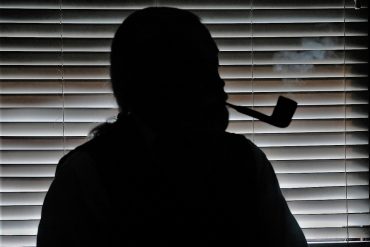It’s been a long time since I’ve had a conversation in person. I don’t leave my apartment often, I rarely see people, I’m a foreigner to my neighbours (they don’t talk to me – most of them don’t even return my greeting). I used to belong to an organization that convinced me that, no matter what it was, I was wrong about everything, and any issues I had were because of my PTSD, not because there was a real problem. I have since left with nothing to replace it.
I have a hard time finding motivation for seeking people out. Human beings are supposed to be social creatures – we crave the company of others. I can’t imagine why. When I think about the relationships I’ve had and how they turned out, the evidence is abundant and clear that I dodged a bullet.
Sometimes, you have to interact with people, and that’s a problem because I’ve forgotten how. Yesterday, I entered a building and someone I knew was leaving. She greeted me, but I don’t know if I greeted her back – I don’t remember saying hello. When I got where I was going, I had a professional discussion with one person (who also believe she knows more about my field of expertise than I do) and someone else arrived. It never dawned on me there are social rituals one goes through before asking, ‘is this copyrighted, or can we adapt it?’ The people I was with were shocked, I think, so I covered with a joke – my protection in the face of my own evil.
People with PTSD and other mental health issues are often socially awkward. We find company in our own thoughts, and contact with others, when not overtly threatening, seems like an intrusion. Because people think in concepts and symbols, not words, finding the right word in a conversation with someone else can be challenging.
We avoid people because of the way they treat us, the way they view us, the way they ignore us, and the speed with which they misinterpret us. My feeling, though, is that the difficulties I have in interacting with others aren’t because of post traumatic stress, or chronic depression. My difficulties stem from isolation.
There are a lot of us, you already know us and you’ve probably forgotten us. Some of us function socially on a higher level than others, but there are many isolated people who suffer because of it:
The elderly. The chronically ill. People with no money. People with no transportation. People in solitary professions. People who communicate with difficulty because they’re deaf, or do not speak the language of the neighbourhood. I don’t know if they still use this term: shut-ins. As often as not, people are shut in because even though they can leave, they have nowhere to go, and no way to get there. Then there’s the matter of, if they have a place to go and a way to get there, can they get in?
Isolation makes your world smaller. Seemingly insignificant events or glitches taken on monumental proportions. Isolation often leads to anxiety and depression (as if some weren’t expert in those fields already!) It can lead to a deterioration of physical health as well.
It’s worse when you can’t turn to others. Efforts outsiders might make fall under suspicion because there’s nothing worse than people offering help because they feel sorry for you. Do it because in your heart, you actually mean it for the benefit of the other person, not because it assuages your sense of guilt.
Social media is a great relief for people in isolation. It’s curious how often we talk about isolation, how frequently we discuss things such as ‘what would I do if I had a visitor?’ We laugh (I suppose) at the goofs we make because of our awkwardness: I read this morning of someone who went to the doctor’s office because she had a ‘reservation’ for ten o’clock. Of course, she meant ‘appointment.’
I sang a duet with myself last night. I sang with the echo of my four walls.
Paul TN Chapman
[email protected]
————————————————————————–
If you liked this article, please feel free to share it!
My eBooks and paperbacks are available on Amazon.com:





